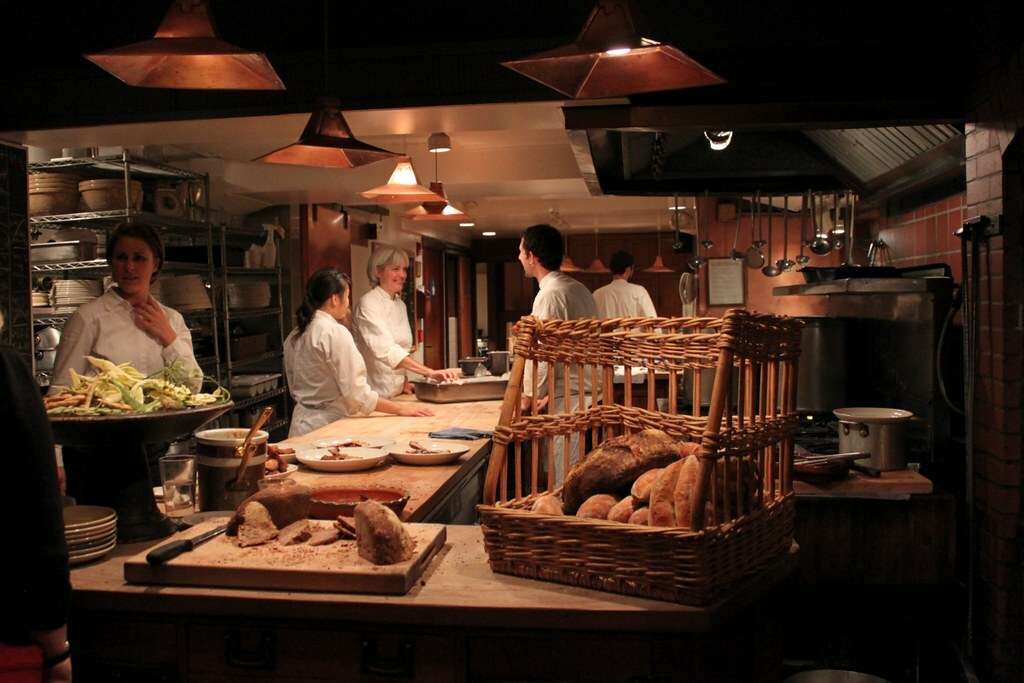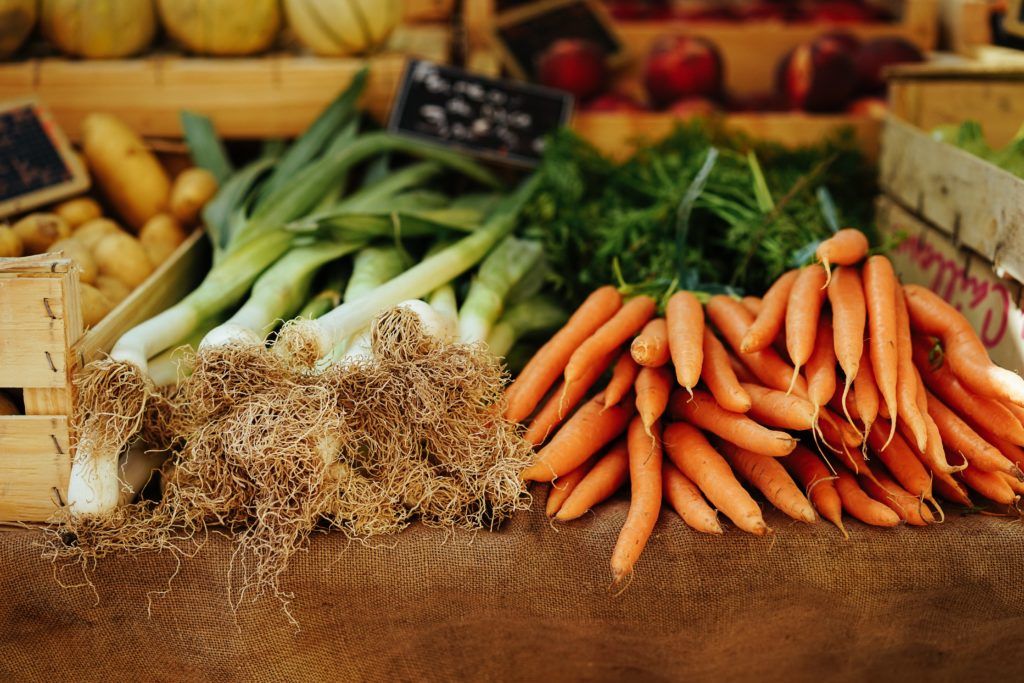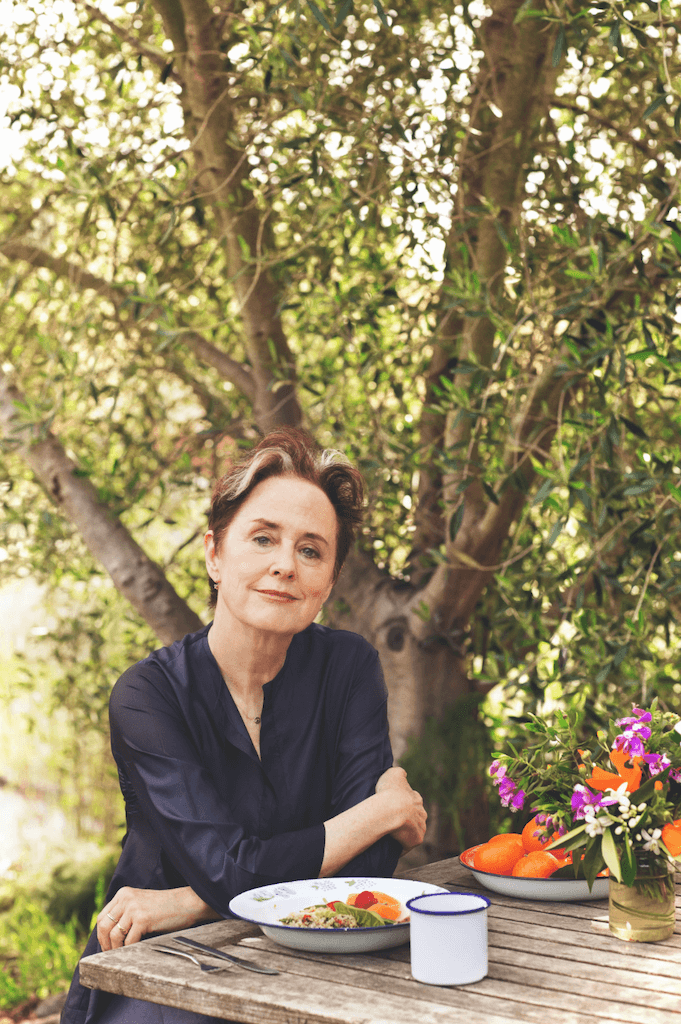Chef Alice Waters’ Berkeley restaurant Chez Panisse opened its doors in 1971. Its refined approach to French cuisine shined the spotlight on regenerative agriculture and helped to transform our food system. But half a century on, Waters says there’s still work to be done.
In the abundant produce basket that is California, chef and restaurateur Alice Waters was able to be selective from the start, finding organic growers long before the USDA certification program launched in 2002.
She found that prioritizing the highest quality food more often than not meant Chez Panisse, her popular upscale Berkeley restaurant, was supporting small, family-run operations, further enabling her to make her restaurant the antithesis of the corporatized mono-cropped food culture that the 1960s and ’70s counterculture movement so eschewed.
Waters took her slow food inspiration from the French — where farm-to-table has long been the trend. Waters delivered more than just good food, though; she delivered craft — hours-long meals made from food grown and raised locally, processed minimally, and prepared meticulously.
“I didn’t fully understand the power of food when I opened Chez Panisse in 1971,” Waters writes in her Manifesto. “I opened Chez Panisse because feeding people good food felt like the only hopeful thing I could do.”
Chez Panisse
Waters opened Chez Panisse in August 1971 at a transformative time in America. It was the height of the Vietnam War, and the country was also reeling from racial divides. It was also a time when women much like herself — she was 27 in 1971 — were opting for careers first, instead of rushing to start families.
Where other 1960s-era restaurants like The Source in Los Angeles and upstate New York’s famed Moosewood were steeped in the counterculture’s long-haired hippie stereotype, Waters and Chez Panisse led a culinary shift; and where she went, trends followed.
Waters, now 78, was as gourmet as Jacques Pépin and as reassuring as Martha Stewart. But she was also as straightforward as Muhammad Ali, taking pointed shots at the omnipresent fast and processed food industries.

“If you’re eating in a fast food restaurant, or in a fast food way,” she wrote, “not only are you malnourishing yourself, but you’re also unwittingly digesting the values of this fast food culture.”
This is more than just a recipe for health issues on a personal level, she insists; we are seeing this malnourishment play out in the widespread mental health crisis, the climate emergency, and the pervasive anti-science conspiracy theories.
I cannot compromise when it comes to wholesomeness. Our health begins in the ground. Period.
Alice Waters
Waters began using the restaurant as a change agent to help dialogue about our relationship with food. She’s authored more than a dozen books and started the Edible Schoolyard project 25 years ago to help bring food education and awareness to schools. And the recent opening of the Alice Waters Institute for Edible Education at the University of California, Davis, will bring together experts in education, health care, agriculture, policy, and business, to create new solutions for a healthy and sustainable food system.
But despite Waters’ efforts to clean up our food system, she’s also been called elitist, catering to a well-to-do Northern Calif., enclave rather than being sympathetic to the food deserts and challenges that affect a growing percentage of the population. (Anthony Bourdain once compared her to Pol Pot.) But Waters defends her position, her restaurant, and what clean food really means.
A new food economy
Her rise mirrored that of the supermarket chain that could have very well borne her name: Whole Foods Market. Rooted too in the counterculture of the 1960s and ’70s, it shook off its dingy bulk bin co-op vibes, but kept its healthy food ethos, propelling it into mainstream culture. With its mood-lighting and organic produce glow-ups, Whole Foods Market, like Waters, made farm-to-table eating easier and more affordable than ever.
“Certainly there is a vibrant farm-to-table movement in this country,” Waters told the New York Times. “The farmers’ markets that are dedicated to organic and regenerative are incredibly exciting to see. I have to say, the idea of small restaurants happening like the ones that I went to when I was in France in the ’60s is so appealing. They’re not running a restaurant to make a big pot of money. They do it as a way of life. They’ve taken all these human values — nourishment, community, beauty and diversity — and run with them.”
Beauty and meaning are human values, and we have taken these away from the public.
Alice Waters
Despite all she’s accomplished, it’s not yet the world Waters had hoped to see by now.
“Beauty and meaning are human values, and we have taken these away from the public. They’re being sold the cheapest pot and pan; the thing that you buy and it breaks down and you buy another one,” she says.
“[W]e have lost the idea of the preciousness of food,” she says. “We think it’s OK to waste. It is unconscionable to waste.”

For Waters, Chez Panisse has always offered customers a reminder that food is sacred. And she says there’s nothing elitist about that.
“And to think that food should be cheap? It’s always been precious,” she says. “So whenever anybody talks about elitism — excuse me, we’re talking about nourishment. We’re talking about pay for employees. We’re talking about climate change,” she insists.
“I cannot compromise when it comes to wholesomeness. Our health begins in the ground. Period. The health of the soil is the most important thing right now for our health and for climate,” she said.
“I cannot accept any excuses, because I don’t believe they’re true,” Waters insists. “They’re myths promoted by the fast-food industry: ‘It’s too expensive to eat organic, regenerative food.’ It is not. If you know how to cook and you don’t eat huge amounts of meat and cheese, it is not more expensive. It doesn’t take more time. We can do it. That is what I’m trying to help people understand.”
Related on Ethos:


